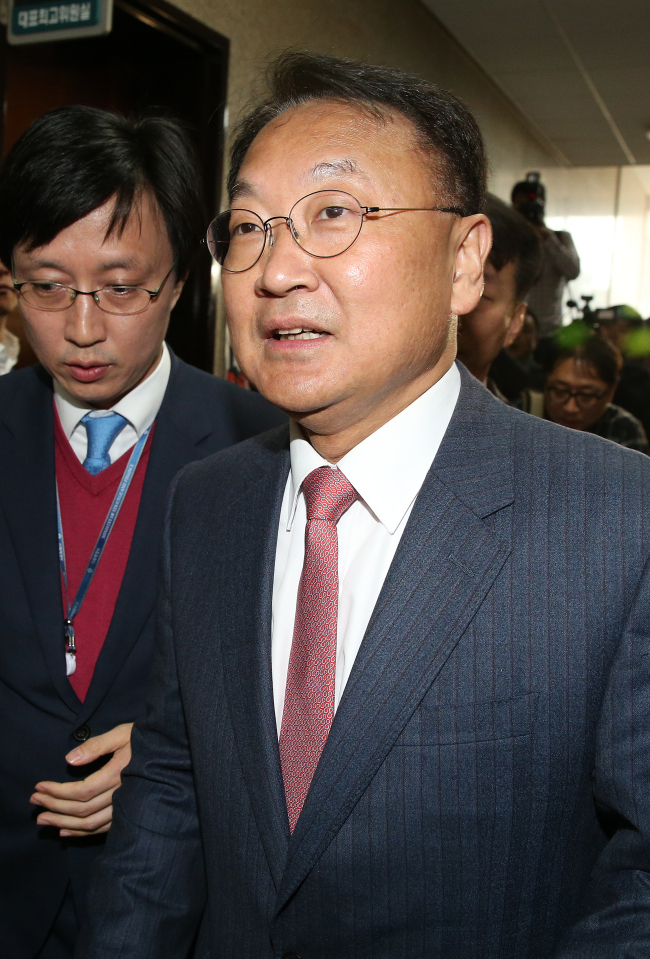Yoo Il-ho, the nominee for Korea’s top economic post of deputy prime minister and finance minister, has vowed to carry on the legacy of his would-be predecessor, but the road ahead may require more, due to the multiple challenges the economy faces.
“The global economic environment now is not very favorable, and navigating the local economy against this global backdrop will be a tough job,” Yoo, 60, told reporters shortly after his nomination Monday.
The nominee stressed consistency in government policy, vowing to maintain the current expansionist economic policy laid down by the outgoing minister Choi Kyung-hwan.
“I will not deviate far from the policies that have been put in place under Deputy Prime Minister Choi or the economic directions of the current administration,” Yoo said.
The changing of guard at the helm of the economy comes as Korea braces for some rough terrain next year, as exports, the country’s main locomotive for growth, are expected to suffer from weak global demand.
With the slowing pace of China’s economic growth topping global concerns, the world economy is headed for a so-called Great Divergence in monetary policies, with the U.S. having recently entered a tightening mode while eurozone, China and many others still in their easing cycle. Falling oil prices are another global source of uncertainty.
Challenges await the Korean economy on the domestic front, too.
With household debt at a record-high level, private demand is feared to fall sharply next year once the effects of this year’s government-led consumption boosting measures fade.
Reflective of this, economists have been slashing their growth forecasts for the Korean economy next year. The Finance Ministry, too, trimmed its real GDP growth outlook for 2016 to 3.1 percent, down 0.2 percentage point from its previous forecast. The BOK projects 3.2 percent growth next year.
Against this backdrop, Yoo chose reforms as his top priority.
“To respond preemptively, we need to act now on proposed reforms,” he said, calling for swift passage of economy-related bills currently pending at the National Assembly.
The comment echoes earlier remarks by President Park Geun-hye and the outgoing finance minister Choi that heaped pressure on lawmakers to handle bills pertaining to the so-called four big reforms of the current administration ― finance, labor, public sector and education.
The stance was widely expected as the nominee has assisted Park in economic policymaking right from the transition period, serving as chief secretary to the then president-elect.
An economist, two-term lawmaker and former transport minister, Yoo described himself as a “conservative free-market advocate” in an interview with a daily newspaper.
He also said that currency manipulation had “many risks” and that the current record-low interest rate “could stay on” for a while, because the effect of the loose-money policy had not fully materialized.
Yoo, who graduated from Seoul National University and has a Ph.D. in economics from the University of Pennsylvania, previously headed the Korea Institute of Public Finance, before entering politics in 2008.
By law, the nominee has to go through a parliamentary confirmation hearing, which he already underwent earlier this year for his appointment as transport minister. If appointed, he will return to the Cabinet just 50 days after his resignation as transport minister.
By Lee Sun-young (
milaya@heraldcorp.com)







![[Today’s K-pop] Blackpink’s Jennie, Lisa invited to Coachella as solo acts](http://res.heraldm.com/phpwas/restmb_idxmake.php?idx=644&simg=/content/image/2024/11/21/20241121050099_0.jpg)
